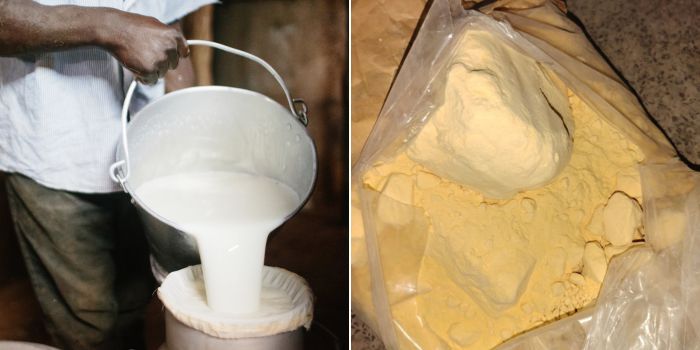In a candid interview with Inooro TV on Sunday, President William Ruto opened up about the reasons behind his administration's decision to halt milk powder supply from neighbouring countries, specifically Uganda, to Kenya. The move came in response to revelations that some well-connected individuals were taking advantage of trade relationships within the East African Community (EAC) to import foreign milk and surreptitiously sell it in Kenya.
"We discovered that there was milk coming in from our neighbouring country, and in many cases, it was not sourced from their local farms. Instead, it was milk from foreign countries, processed at factories, and then brought into Kenya," Ruto explained.
He expressed deep concern about the negative impact such practices had on local Kenyan farmers, who were left unpaid for their milk while foreign products flooded the market. As a result, his administration took decisive action to protect the interests of Kenyan farmers by putting an end to these unfair trade practices.
"Our decision to close down these operations was essential because a company operating within Kenya should not be allowed to source milk from foreign nations, process it, and then profit from it without properly compensating our own farmers," Ruto emphasized.
Despite the suspension of milk powder imports, President Ruto assured the public that his administration is engaging in constructive dialogue with other EAC countries to ensure fair trade practices within the region. During these talks, Ruto emphasized the importance of obtaining milk exclusively from local farms, respecting the regulations of the EAC while safeguarding the livelihoods of Kenyan farmers.
The Kenya Dairy Board (KDB) played a pivotal role in the decision to suspend milk powder importation in March. This move aimed to protect local farmers from uncompetitive trade practices and boost milk production during the anticipated long rains. Although the suspension was temporary, it signaled the commitment of the government to prioritize the welfare of its farmers.
Margaret Kibogy, the Managing Director of KDB, revealed that ongoing discussions were underway to further protect Kenyan farmers. This concerted effort aimed to shield the local agricultural sector from undue challenges posed by exploitative trade practices. As a result of these discussions, the temporary ban on milk powder importation was eventually lifted, providing a sigh of relief for farmers.
President Ruto and his deputy, Rigathi Gachagua, have emerged as staunch champions of the interests of farmers throughout Kenya. Since taking office, their administration, Kenya Kwanza, has actively implemented measures to combat cartels in the milk, tea, and coffee industries.
Looking ahead, President Ruto reaffirmed his administration's commitment to strengthening the nation's agricultural sector. Among the initiatives, they plan to increase the number of milk cooling plants across the country, ensuring better infrastructure to support the dairy industry and safeguarding the interests of Kenyan farmers.

